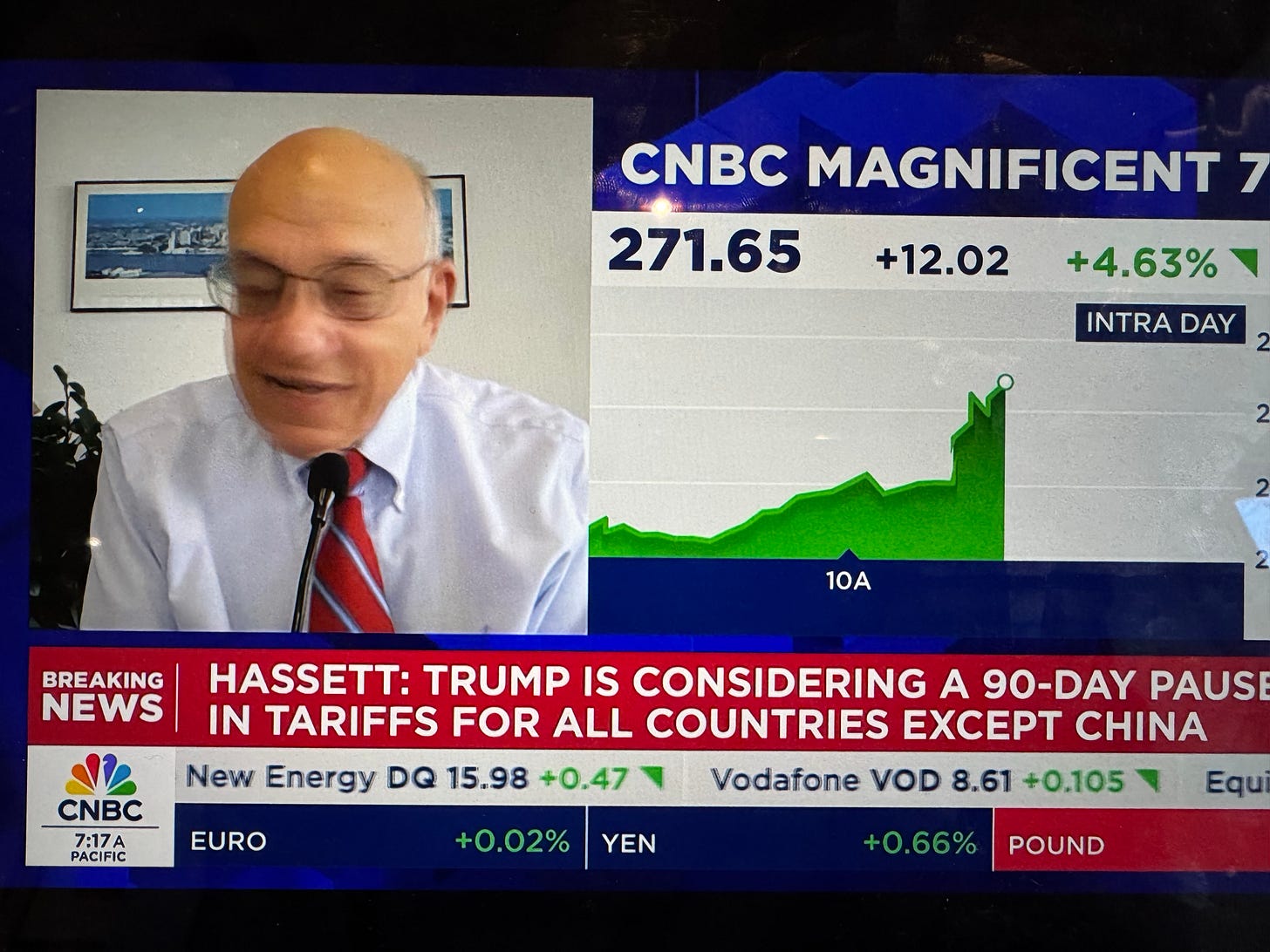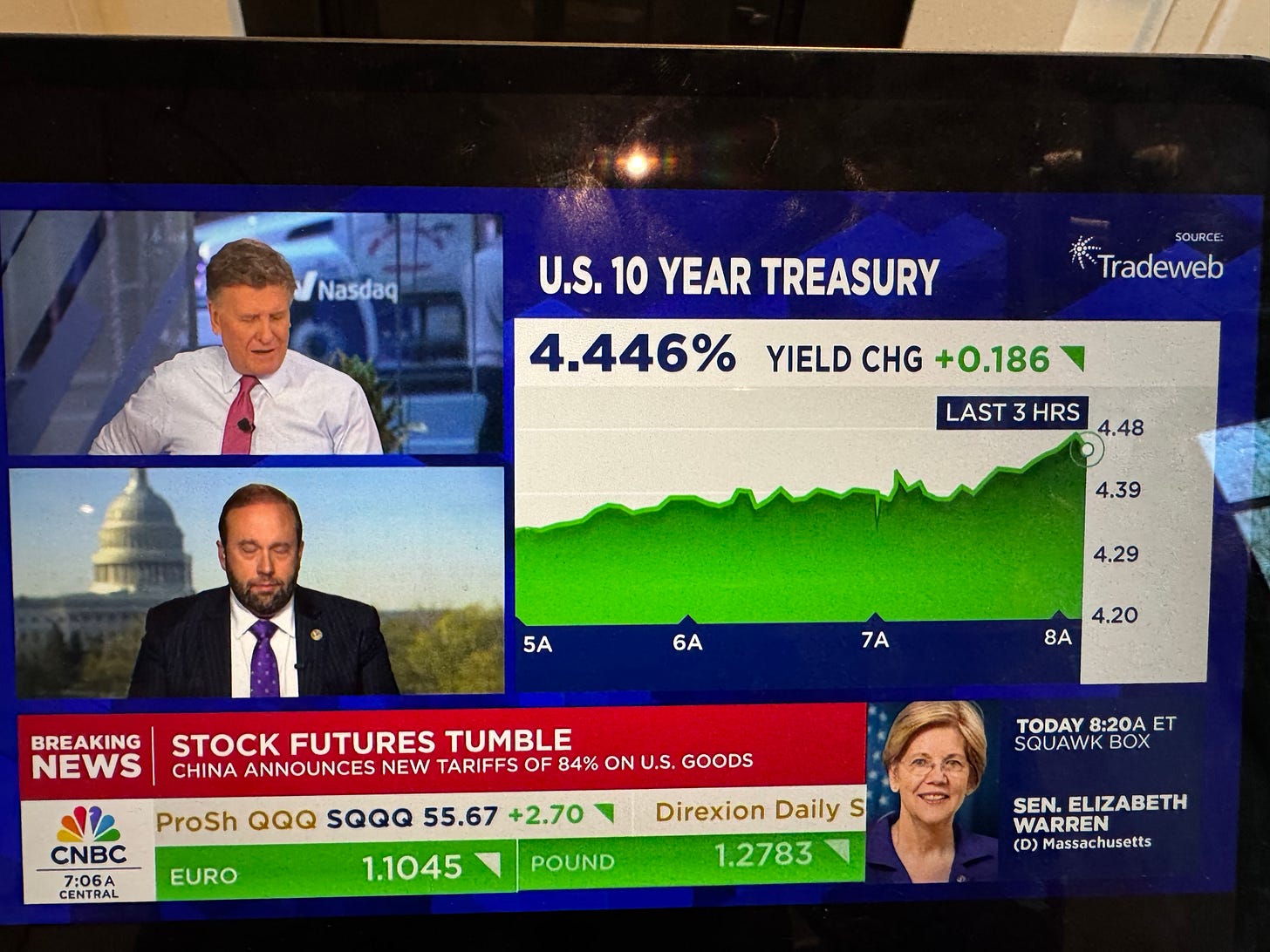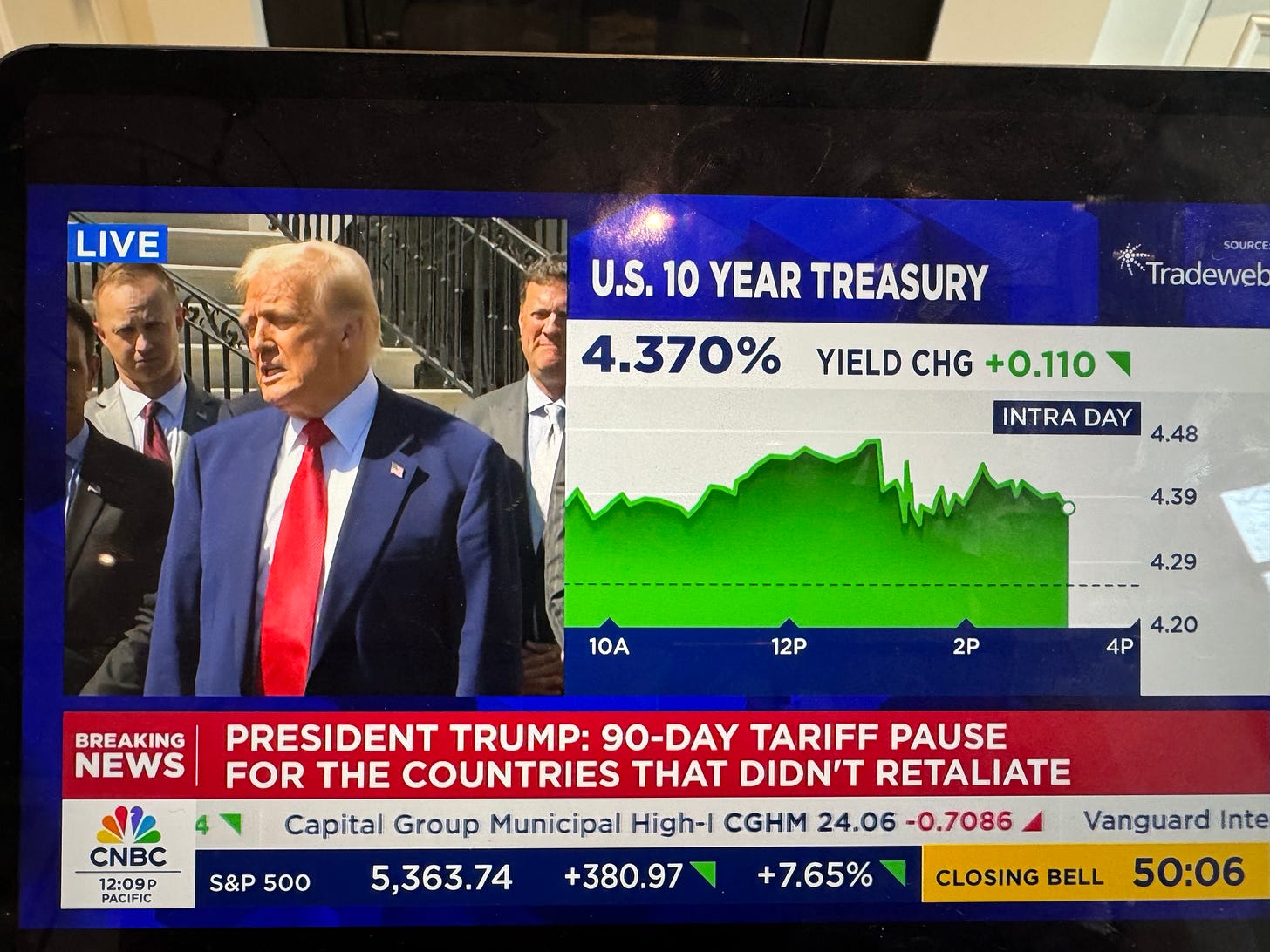What's up with the Bond & Currency Markets?
A video Q&A with Tony Soares, an expert with almost 40 yrs of experience in the global currency, commodities and securities markets.
A week ago tonight, U.S. President Donald Trump was interviewed aboard Air Force One about the early fallout from his planned “Liberation Day” announcement. Mr. Trump told CNBC that “he doesn’t want stocks to go down, but sometimes you have to take medicine.”
Down on Monday they went, until, suddenly, they turned. An advisor to the White House had told one media outlet — allegedly — that Mr. Trump was considering a 90-day pause on implementing the tariffs. Things turned bigly.
Only to have Mr. Trump’s Press Secretary advise that it was all “fake news.” Equities sold off immediately.
And bounced around again on Tuesday.
By 10:30am EDT Wednesday morning, things got strange for the Bondies. The bond market is usually a safe haven when equities correct, but not on this particular morning. They were being crushed at the same time as equity futures were “tumbling.”
So much so that the White House acted a few hours later, despite having already weathered several tough equity trading days.
Given how unusual this all was, I’ve recorded my first video Q&A. I wouldn’t call it a “podcast” given how amateur the sound and lighting is, but I hope agree that it served the purpose. My guest is Tony Soares, an expert with almost 40 yrs of experience in the global currency, commodities and securities markets.
We tackled:
What actually happened mid last week when the 10 US bond ran up 30 bps in the space of a couple of hours?
Then the US currency seemed to sell off; why?
Why did the Euro appreciate vs USD and CAD?
Why did the US Administration react so quickly to the bond market swoon having ignored a several thousand point drop in equities?
What should an average investor watch for?
China owns US$760 billion of US debt. How far can the US Administration push the CCP?
Thank you Tony! Hit the YouTube link to watch -
MRM
(Note: this post reflects personal opinions and is not financial advice)





